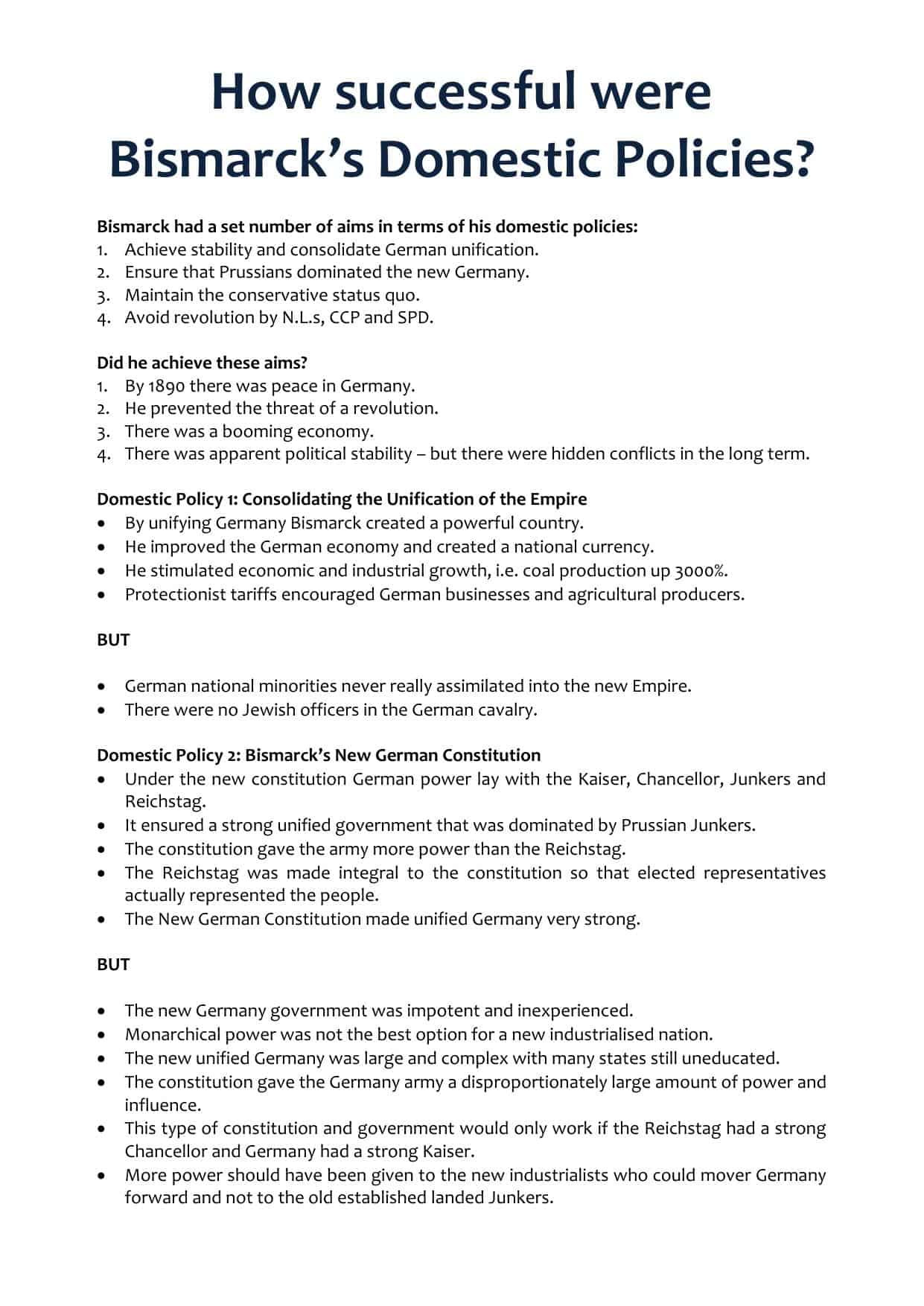Premium

Download How successful were Bismarck’s Domestic Policies
Click the button below to download this worksheet for use in the classroom or at home.
Download →
Lesson Snapshot:
Overall Success?
- Bismarck did succeed in avoiding massive political, social and economic upheaval in Germany after the unification.
- He maintained the political and social dominance of the Prussian Junkers.
- Free trade had been introduced on Bismarck’s terms.
- His welfare policies had made Germany a model for other countries.
- His Kulturkampf had failed miserably.
- His wish to prevent the rise of socialism had not been fulfilled.
- He unjustly ignored the need for an increase in political power for the industrialists.
- He ignored the growing demands of the working and middle classes for social change – even though change was inevitable.
- Bismarck’s domestic policies actually represented an attempt to hold back the natural progression of political democracy in Germany by ignoring new economic and social conditions. Bismarck wanted to maintain autocratic control for as long as possible and delay the development of a true democratic system. Bismarck’s fall from power in 1890 revealed his lack of widespread support. By 1890 he had few political allies and was out of touch with current views in Germany. Ultimately Bismarck failed to change with the times and failed to appoint a suitable successor.
Worksheet Task:
- Aimed at Students studying across AS/A2 or equivalent
- Premium resource
- Use as you wish in the classroom or home environment
- Lesson fact file on Bismarck’s domestic policies.
- Use with other German Unification resources.
- Includes challenging questions.
